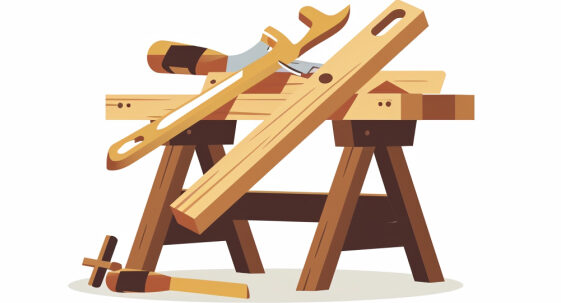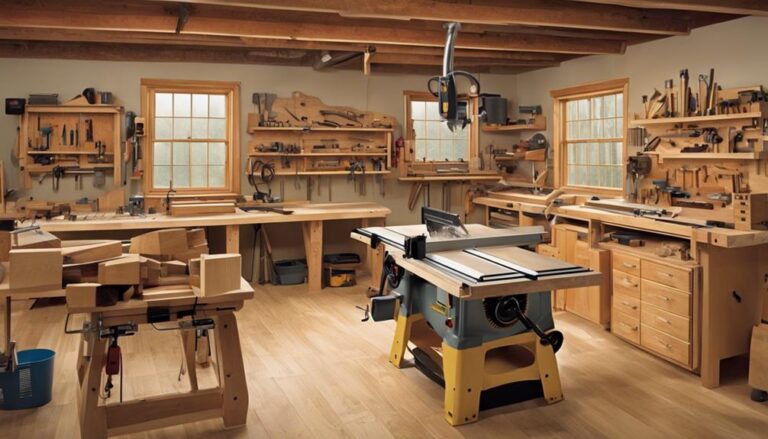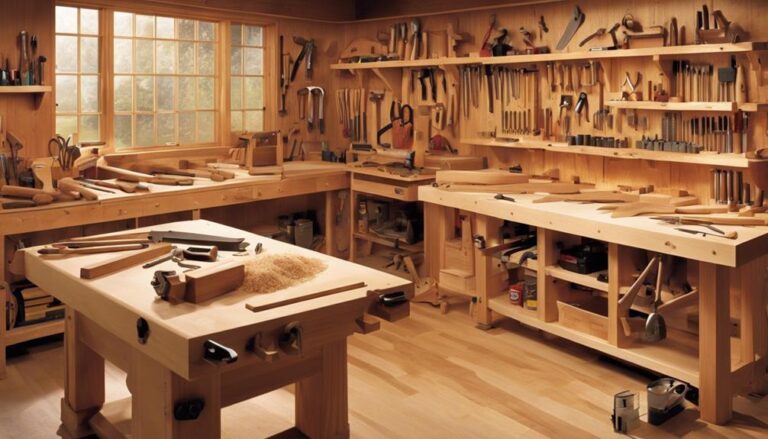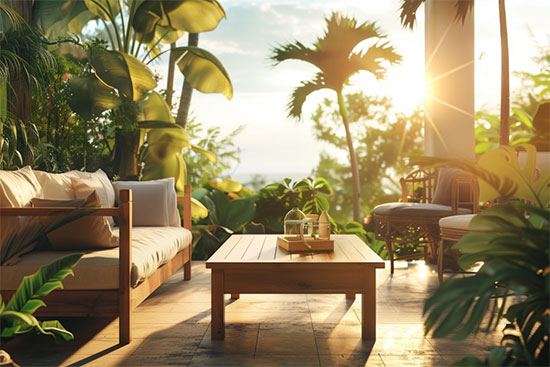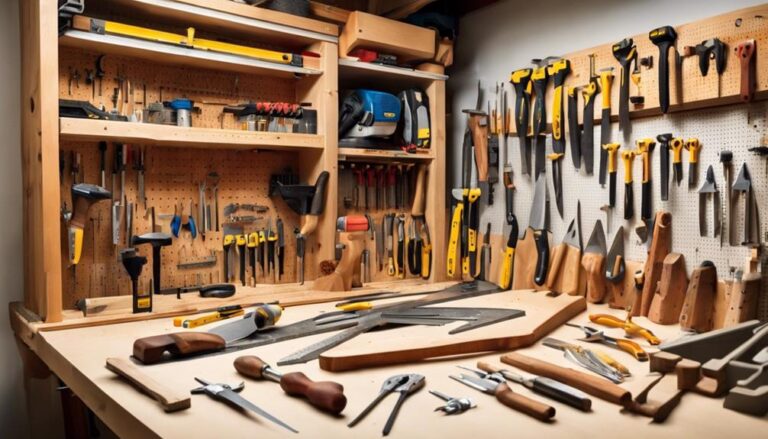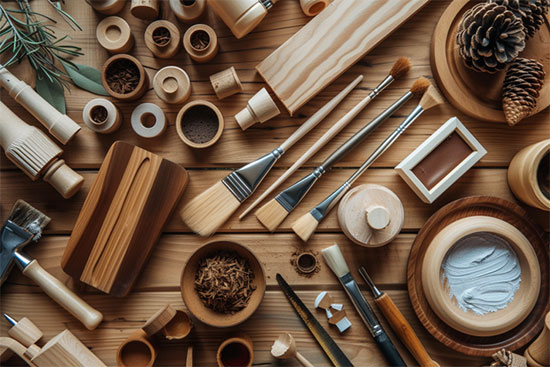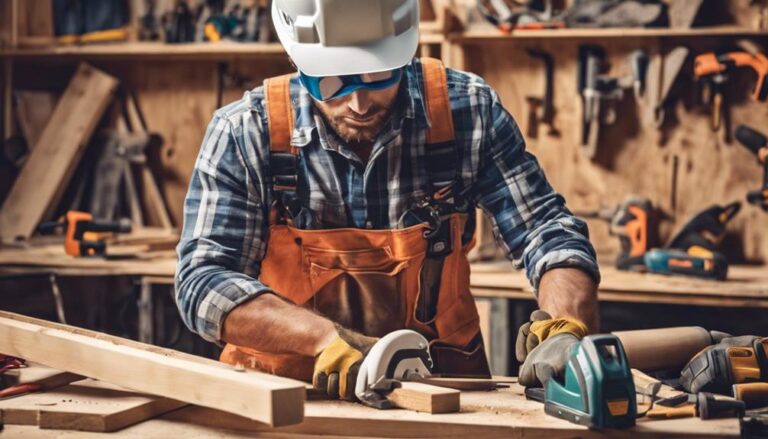Imagine lounging in your garden, the warm sun kissing your skin, as you rest on a beautifully crafted cedar bench that seems to blend seamlessly with the natural landscape.
You’re in the market for durable outdoor furniture, and you’ve got options, but not all woods will meet your needs for longevity and minimal maintenance. Teak, cedar, eucalyptus, and acacia stand out, but each has its unique advantages and considerations.
What makes these woods the top choices, and how do they compare against newer contenders like Ipe? Stick around, and you’ll discover how to make an informed decision that ensures your outdoor oasis remains timeless.
Contents
The Timeless Teak Advantage
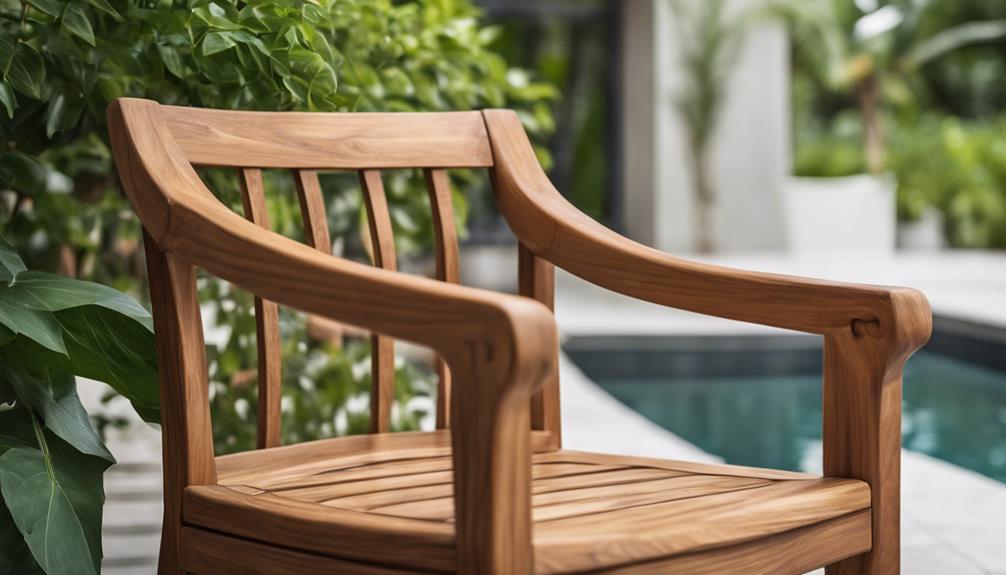
Teak’s high oil content not only wards off rot and decay, making it a prime choice for outdoor furniture that effortlessly stands the test of time. Its natural water-repellent properties bolster its durability against outdoor elements, ensuring your patio dining tables, benches, and loungers not only look exquisite but endure through seasons with minimal maintenance.
Imagine possessing furniture that grows more distinguished with age, its timeless appeal undiminished by the passing years. Teak embodies this ideal, offering longevity that makes it a wise investment for any outdoor space.
Its inherent resilience to decay and rot, coupled with its aesthetic and functional superiority, positions teak as an unrivaled selection for those seeking outdoor furniture that combines elegance with enduring strength.
Cedar: Nature’s Resilience
While teak offers unparalleled durability and beauty, cedar presents its own compelling advantages as an exceptional choice for outdoor furniture, known for its natural resilience. Cedar’s innate properties make it a robust contender in the realm of outdoor furnishings. Its allure isn’t just skin deep; cedar combines aesthetic appeal with functional prowess.
Here’s why cedar stands out:
- Resistant Qualities: Cedar is naturally resistant to rot, decay, and pests. This durability ensures your outdoor furniture withstands the elements with grace.
- Affordability and Maintenance: Compared to other hardwoods, cedar is more affordable and requires less upkeep, making it an attractive option for those seeking quality without the high maintenance.
- Thermal Insulation: Air pockets within cedar’s wood grain offer excellent insulation, reducing the risk of warping and enhancing comfort during temperature fluctuations.
Cedar’s blend of durability, affordability, and low maintenance requirements, coupled with its resistance to environmental challenges, makes it a top choice for outdoor furniture.
Eucalyptus: Eco-Friendly Durability
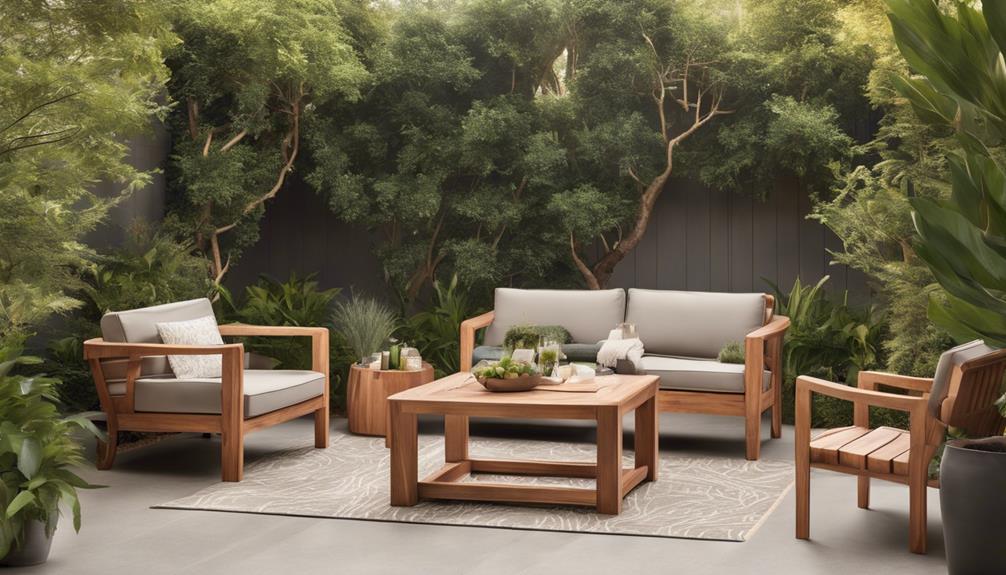
In the realm of eco-conscious choices for outdoor furniture, eucalyptus shines as a sustainable yet durable option, seamlessly blending environmental responsibility with robust performance. Its natural resistance to rot and decay earmarks eucalyptus as a steadfast companion for your garden or patio, ensuring longevity and beauty. Yet, to maximize its lifespan, embracing routine maintenance, including the application of a sealant, is key, especially in regions that flirt with colder climates.
| Quality | Eucalyptus Benefit | Note |
|---|---|---|
| Durability | Fast-growing, sustainably | Less durable than teak, but robust |
| Eco-Friendly | Fast-growing, sustainable | Minimizes environmental impact |
| Maintenance | Requires sealant for longevity | Regular application recommended |
| Affordability | Balances durability and cost | Accessible to a wide audience |
Adopting eucalyptus for your outdoor furniture not only reflects an eco-friendly stance but ensures you’re investing in durable, affordable, and sustainable pieces that stand the test of time.
Acacia’s Weather-Proof Qualities
Continuing our exploration of durable outdoor woods, let’s take a closer look at acacia’s remarkable ability to withstand the elements. Acacia wood stands out for its:
- High oil content, which makes it naturally resistant to elements, rotting, and insects.
- Affordable pricing, paired with a rich, dark golden brown color that adds aesthetic appeal to any outdoor space.
- Need for proper care to prevent discoloration and moisture absorption, ensuring its longevity.
Despite its durability, acacia requires you to keep it off grass or the ground to avoid moisture absorption. Its resilience, coupled with its visual charm, makes acacia wood a popular choice for outdoor furniture like patio sets or benches. Embracing acacia means investing in beauty and durability, provided you’re committed to its care.
Ipe: The Ironwood Alternative
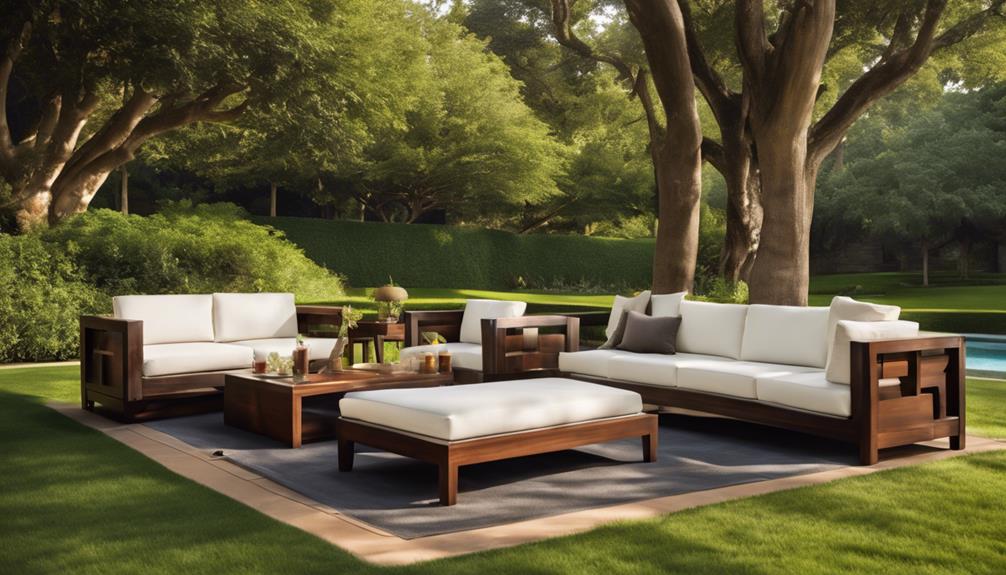
Dive into the world of Ipe, the Ironwood Alternative, renowned for its unmatched durability and stylish appearance, is perfect for crafting outdoor furniture that lasts. Known as Brazilian Walnut, this hardwood stands out for its exceptional strength and resistance to the elements, making it an ideal choice for your garden or patio. Ipe’s popularity is on the rise, not just for its quality but also for its aesthetic appeal in outdoor settings. If you’re seeking furniture that’s both long-lasting and low maintenance, Ipe is your go-to material.
| Feature | Benefit | Why It Matters |
|---|---|---|
| Durable | Long-lasting | Withstands years of use |
| Weather-resistant | Resists elements | Ideal for outdoor use |
| Low maintenance | Minimal upkeep required | Saves time and effort |
| Strength | Supports heavy loads | Ensures safety and reliability |
Embrace the beauty and resilience of Ipe, the ultimate choice for durable, stylish outdoor furniture.
Conclusion
In sum, you’ve got a wealth of choice when it comes to picking the perfect wood for your outdoor haven. From teak’s timeless charm to cedar’s natural resilience, eucalyptus’s green durability, acacia’s robust defiance against the elements, and ipe’s unparalleled strength – there’s a match for every taste and need.
By choosing wisely and treating your selections with care, you’ll craft an outdoor space that’s not only stunning but also stands the test of time. Embrace nature’s best and make your outdoor retreat unforgettable.
